
Ngatangiia: The Serene Heart of the Cook Islands
Ngatangiia is a hidden gem nestled in the Cook Islands. This tranquil village is found on the eastern coast of Rarotonga, offering a peaceful escape from the hustle and bustle of everyday life. Here, you can experience the true essence of island living, with its lush landscapes, crystal-clear lagoons, and welcoming locals who are eager to share their traditions and stories. In Ngatangiia, you can explore the stunning Muri Lagoon, known for its vibrant marine life and pristine waters. Snorkeling and kayaking are popular activities, allowing you to get up close with the colorful fish and coral reefs. The lagoon’s small motus (islets) are perfect for a day trip, where you can relax on the sandy beaches and enjoy a picnic under the shade of coconut palms. A visit to the Ngatangiia Harbour is a must, where you can witness the daily life of local fishermen and perhaps even join them on a fishing expedition. The harbour is also a historic site, marking the departure point of the seven canoes that set sail for New Zealand over 600 years ago. This rich cultural heritage is celebrated every year during the Te Maeva Nui festival, a vibrant showcase of traditional music, dance, and crafts. Ngatangiia offers a range of accommodations, from charming beachfront bungalows to luxurious resorts, ensuring a comfortable stay for every type of traveler. The local cuisine is a delightful mix of Polynesian flavors, with fresh seafood and tropical fruits taking center stage. Don’t miss the opportunity to try ika mata, a traditional dish made with raw fish marinated in coconut milk and lime juice. Whether you are seeking adventure or relaxation, Ngatangiia provides a perfect blend of both. Its natural beauty, rich culture, and warm hospitality make it an ideal destination for those looking to experience the untouched charm of the Cook Islands.
Local tips in Ngatangiia
- Visit Muri Lagoon early in the morning to avoid crowds and enjoy the calm waters.
- Try to attend the Te Maeva Nui festival if your visit coincides with this annual celebration.
- Consider staying in a beachfront bungalow for an authentic island experience.
- Local buses run clockwise and anti-clockwise around the island; this is a convenient way to explore other parts of Rarotonga.
- Bring reef-safe sunscreen to protect the delicate marine life while enjoying water activities.
Ngatangiia: The Serene Heart of the Cook Islands
Ngatangiia is a hidden gem nestled in the Cook Islands. This tranquil village is found on the eastern coast of Rarotonga, offering a peaceful escape from the hustle and bustle of everyday life. Here, you can experience the true essence of island living, with its lush landscapes, crystal-clear lagoons, and welcoming locals who are eager to share their traditions and stories. In Ngatangiia, you can explore the stunning Muri Lagoon, known for its vibrant marine life and pristine waters. Snorkeling and kayaking are popular activities, allowing you to get up close with the colorful fish and coral reefs. The lagoon’s small motus (islets) are perfect for a day trip, where you can relax on the sandy beaches and enjoy a picnic under the shade of coconut palms. A visit to the Ngatangiia Harbour is a must, where you can witness the daily life of local fishermen and perhaps even join them on a fishing expedition. The harbour is also a historic site, marking the departure point of the seven canoes that set sail for New Zealand over 600 years ago. This rich cultural heritage is celebrated every year during the Te Maeva Nui festival, a vibrant showcase of traditional music, dance, and crafts. Ngatangiia offers a range of accommodations, from charming beachfront bungalows to luxurious resorts, ensuring a comfortable stay for every type of traveler. The local cuisine is a delightful mix of Polynesian flavors, with fresh seafood and tropical fruits taking center stage. Don’t miss the opportunity to try ika mata, a traditional dish made with raw fish marinated in coconut milk and lime juice. Whether you are seeking adventure or relaxation, Ngatangiia provides a perfect blend of both. Its natural beauty, rich culture, and warm hospitality make it an ideal destination for those looking to experience the untouched charm of the Cook Islands.
When is the best time to go to Ngatangiia?
Iconic landmarks you can’t miss
Punanga Nui Market
Experience the vibrant culture of the Cook Islands at Rarotonga's Punanga Nui Market, a bustling hub of local crafts, food, and community spirit.
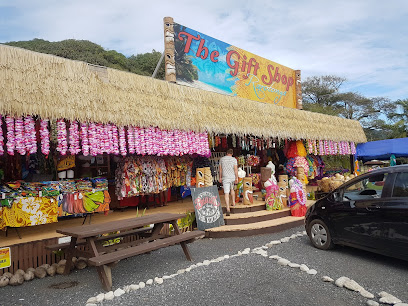
Muri Night Markets
Experience Rarotonga's vibrant food scene at Muri Night Markets: a culinary and cultural feast under the stars. Open Tuesday, Wednesday, Thursday & Sunday evenings.
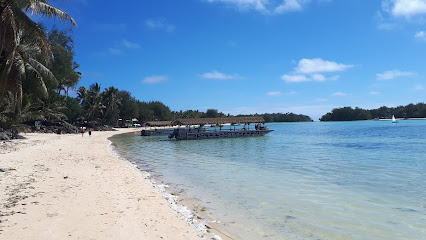
Captain Tamas Lagoon Cruizes
Discover Rarotonga's Muri Lagoon with Captain Tama's: Snorkeling, BBQ lunch, cultural shows, and island fun for an unforgettable day!
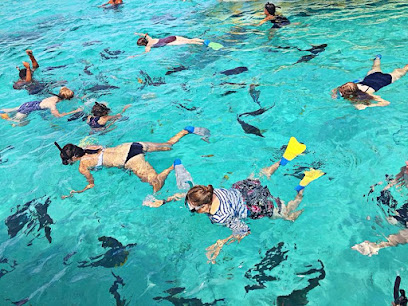
Vili's Burger Joint
Savor mouthwatering burgers and experience the vibrant island vibes at Vili's Burger Joint in Rarotonga's Ngatangiia District.
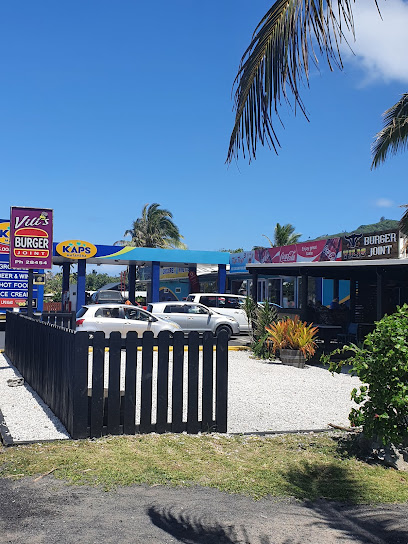
Koka Lagoon Cruises
Discover Muri Lagoon's beauty with Koka Lagoon Cruises: snorkeling, culture, and fun for all ages in Rarotonga's paradise.
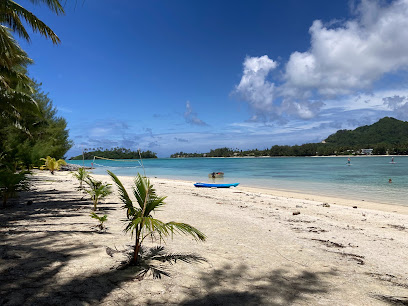
Te Vara Nui Village
Experience Cook Islands culture at Te Vara Nui Village: immersive tours, captivating shows, and authentic traditions in a stunning Muri Beach setting.
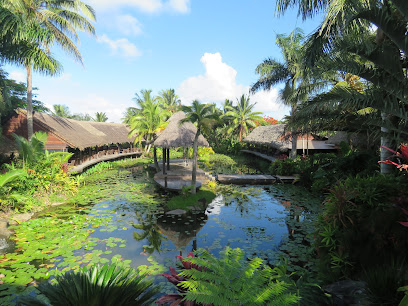
Maire Nui Gardens and Cafe
Escape to Rarotonga's Maire Nui Gardens: a lush botanical paradise with vibrant flora, tranquil ponds, and a delightful garden-to-table café.
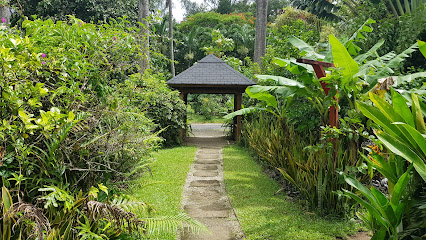
Raro Buggy Tours
Experience Rarotonga's wild side with an off-road buggy adventure through the island's lush interior and hidden gems.
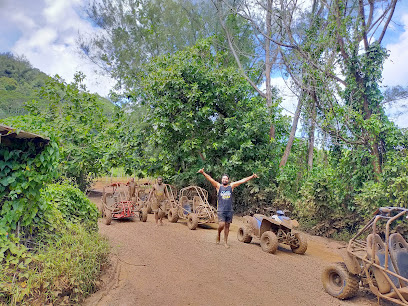
Rarotonga Sailing Club
Experience Rarotonga's sailing culture at this Muri Beachfront club with stunning lagoon views, sailing programs, and delicious Pacific cuisine.
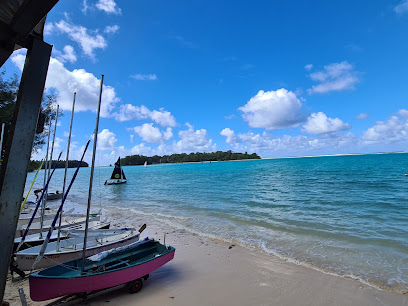
LBV Bakery & Cafe
Experience a taste of paradise at LBV Bakery & Cafe in Muri, Rarotonga. Enjoy fresh pastries, local flavors, and live music in a charming setting.
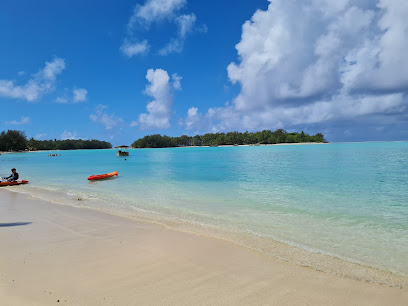
Te Ara Cook Islands Museum of Cultural Enterprise
Immerse yourself in Cook Islands culture at Te Ara Museum in Muri Beach. Discover heritage, crafts, and stories in this cultural enterprise.
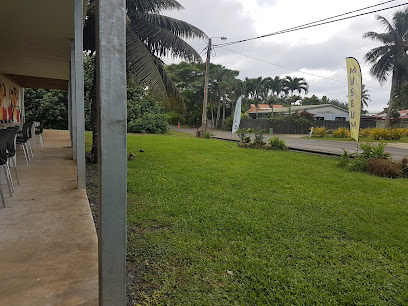
Te Rua Manga (The Needle)
Hike to Rarotonga's iconic Te Rua Manga (The Needle) for breathtaking panoramic views and a glimpse into the island's natural and cultural history.
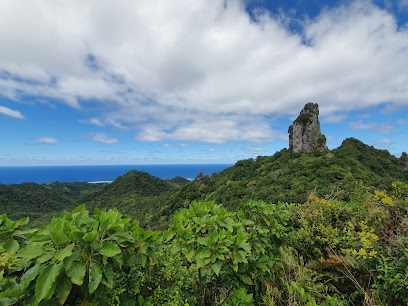
Wigmore's Waterfall
Discover Rarotonga's hidden gem: Wigmore's Waterfall, a serene escape offering lush scenery and a refreshing swimming experience.
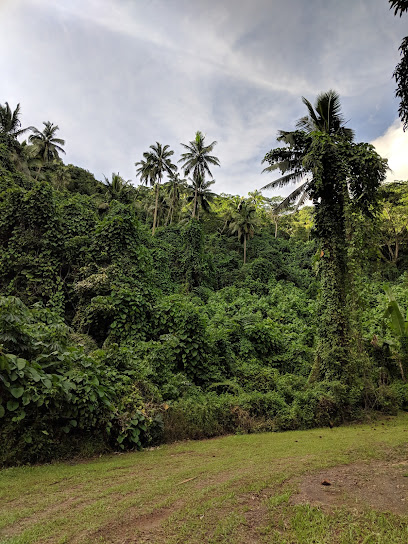
Muri Beach
Experience Rarotonga's most vibrant beach: Muri Beach offers stunning lagoon views, water activities, and Polynesian culture.
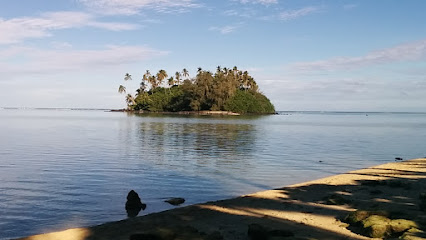
The Rickshaw Rarotonga
Experience authentic Asian flavors in a tropical paradise at The Rickshaw Rarotonga, offering a diverse menu in a cozy garden setting.
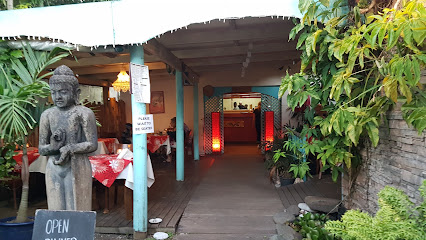
Unmissable attractions to see
Captain Tamas Lagoon Cruizes
Muri Beach in Rarotonga: A tropical paradise for lagoon adventures, stunning sunsets, and unforgettable memories on the soft sands of the Cook Islands.
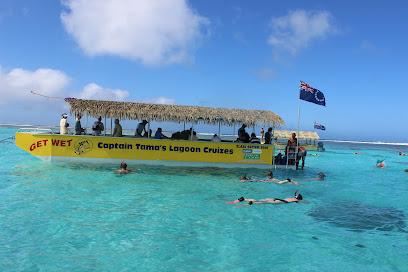
Rarotonga
Explore Rarotonga, the largest island of the Cook Islands, where stunning beaches, rich culture, and breathtaking landscapes await your discovery.
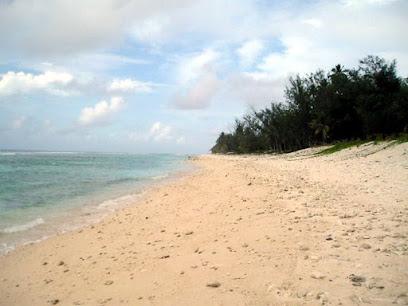
Maire Nui Gardens and Cafe
Discover Rarotonga's lush heart at Maire Nui Gardens: a tropical sanctuary blending botanical beauty with sustainable, family-run charm.
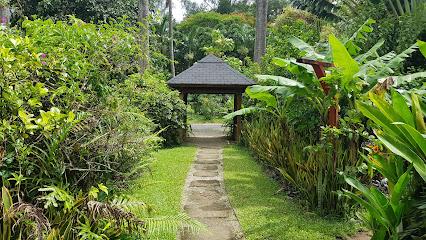
Shipwreck Hut Bar & Restaurant & Accomodation
Discover the vibrant atmosphere of Shipwreck Hut Bar & Restaurant in Arorangi, where delicious food meets live music and stunning ocean views.
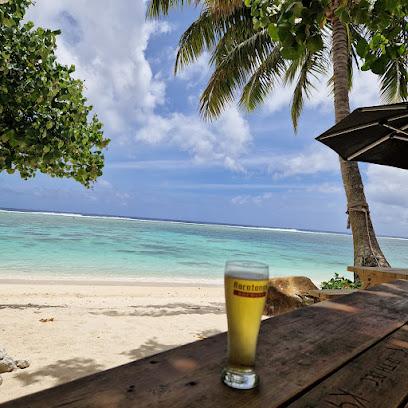
Te Ara Cook Islands Museum of Cultural Enterprise
Explore the rich heritage and vibrant culture of the Cook Islands at Te Ara Cook Islands Museum of Cultural Enterprise near Muri Beach.
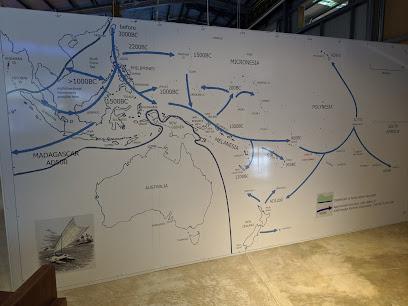
Ariki Adventures
Experience the ultimate adventure at Ariki Adventures in the breathtaking Cook Islands, where thrilling water sports and stunning scenery await every visitor.
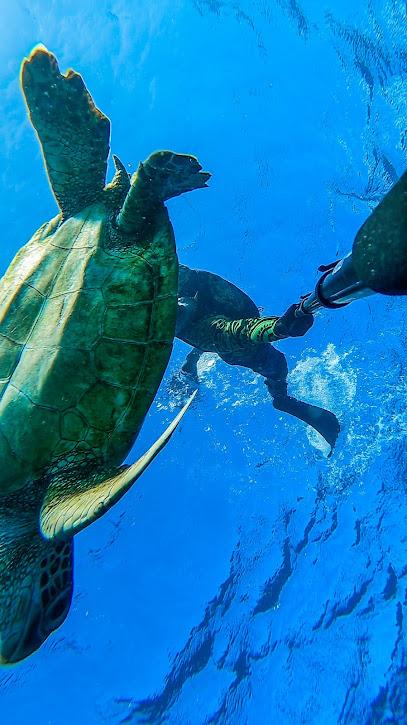
Te Rua Manga (The Needle)
Experience the breathtaking views and adventurous hikes at Te Rua Manga, Rarotonga's iconic natural landmark and a must-visit for nature lovers.
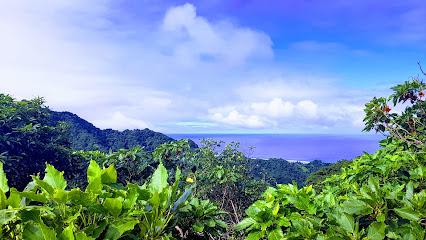
Muri Beach
Experience Rarotonga's most vibrant beach: Muri Beach offers stunning lagoon views, water sports, and cultural experiences for an unforgettable tropical getaway.
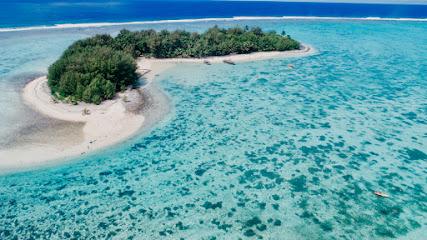
Black Rock
Discover Rarotonga's legendary Black Rock: stunning volcanic formations, snorkeling, and breathtaking sunsets await near Avarua.
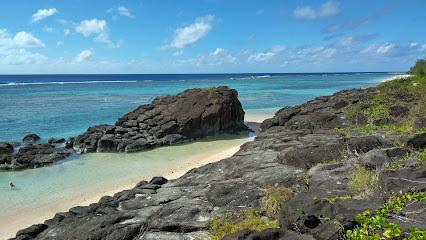
KiteSUP Watersports Cook Islands
Experience the thrill of kite surfing, paddleboarding, and snorkeling in Rarotonga's stunning Muri Lagoon with expert instruction and guided tours.
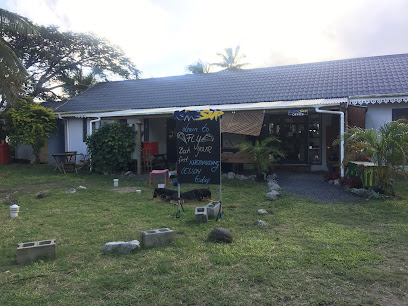
Raro Reef Sub
Discover Rarotonga's underwater wonders aboard a semi-submersible. Explore shipwrecks and marine life in comfort. A unique Cook Islands adventure awaits!
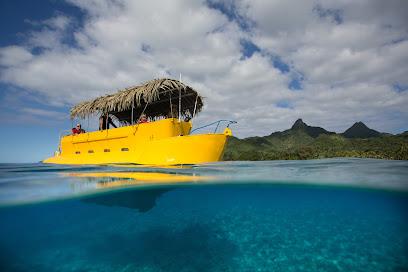
Cook Islands Library & Museum
Discover the captivating history and culture of the Cook Islands at the Cook Islands Library & Museum in Avarua.
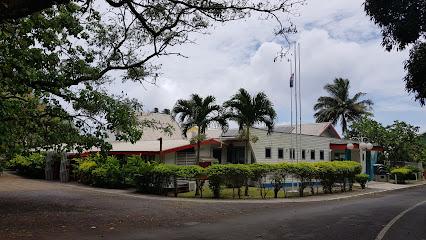
Arorangi CICC Church
Discover the peaceful charm and cultural richness of Arorangi CICC Church in the Cook Islands, a perfect retreat for spiritual reflection and appreciation.
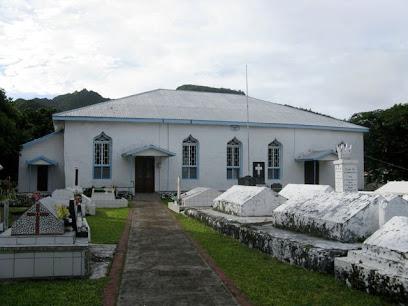
Muri Lagoon
Discover the serene beauty of Muri Lagoon in the Cook Islands, a tropical paradise perfect for relaxation and adventure amidst stunning natural landscapes.
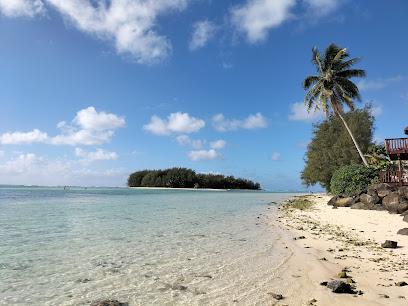
Cook Islands Tours
Discover the breathtaking beauty and vibrant culture of the Cook Islands through personalized tours designed for every adventurer.
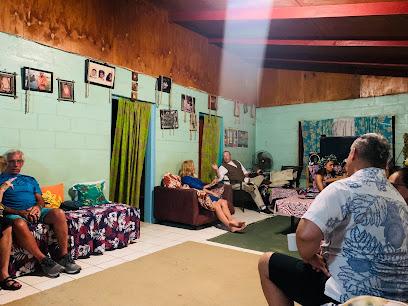
Essential places to dine
Trader Jacks
Experience culinary delights at Trader Jacks - where grill meets island vibes in Avarua's vibrant heart.
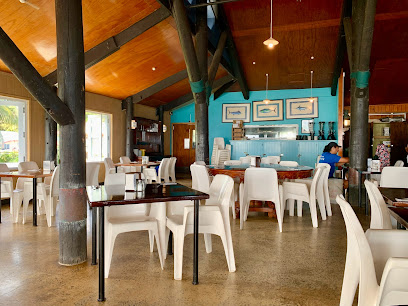
Charlie's Raro
Experience exquisite dining at Charlie's Raro in Takitumu District—where local flavors meet international cuisine amid breathtaking scenery.
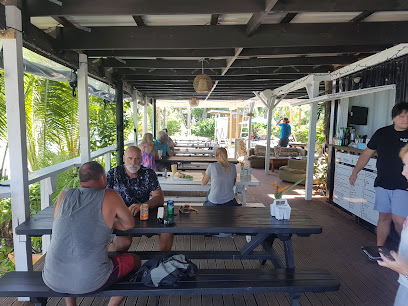
The Mooring Fish Cafe
Experience the best fish and chips at The Mooring Fish Cafe in Ngatangiia – fresh flavors and stunning views await!
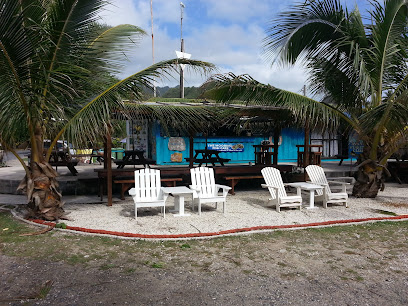
Vili's Burger Joint
Experience mouthwatering burgers and tropical vibes at Vili's Burger Joint in Ngatangiia District - a must-visit for food lovers!
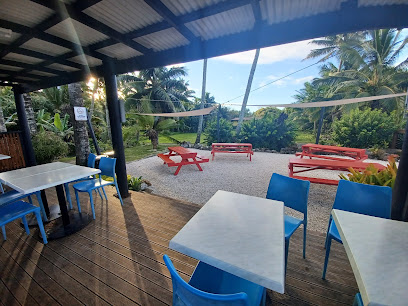
Nautilus Resort Rarotonga
Experience paradise at Nautilus Resort Rarotonga—where luxury meets nature in breathtaking harmony.

Tamarind House Restaurant & Ukulele Bar
Experience the essence of Cook Islands cuisine at Tamarind House Restaurant & Ukulele Bar with fresh local flavors and lively entertainment.
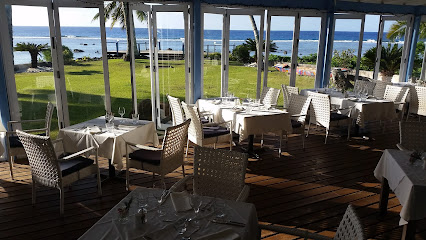
Vaima Restaurant and Bar
Discover the flavors of the Cook Islands at Vaima Restaurant and Bar – where every meal is an unforgettable experience.
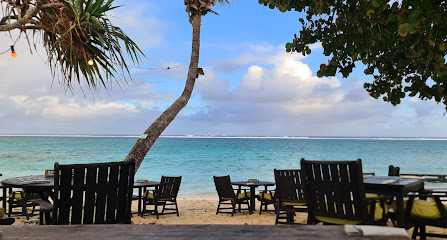
The Waterline Restaurant and Outrigger Beach Bar
Discover culinary delights at The Waterline Restaurant with breathtaking views in Rarotonga—perfect for food lovers and sunset seekers alike.
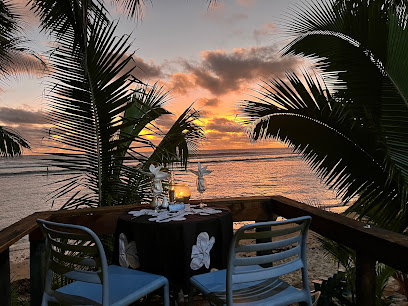
Rarotonga Sailing Club
Discover Rarotonga Sailing Club: A tranquil escape with stunning views, fresh cuisine, and exciting water activities on Rarotonga.
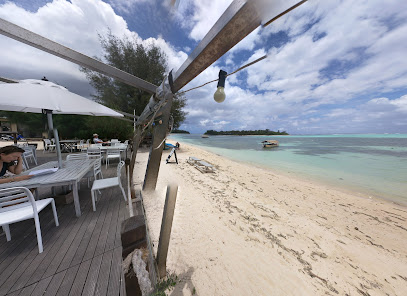
Antipodes rarotonga
Experience culinary excellence at Antipodes Rarotonga with stunning views and delightful dishes inspired by local flavors.
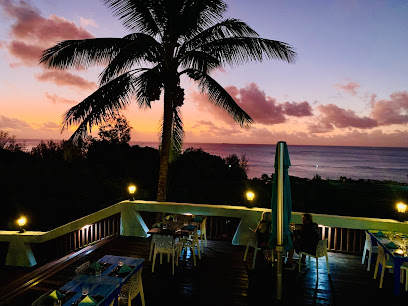
Shipwreck Hut Bar & Restaurant & Accomodation
Experience vibrant dining at Shipwreck Hut Bar & Restaurant with live music and stunning ocean views in Arorangi District.
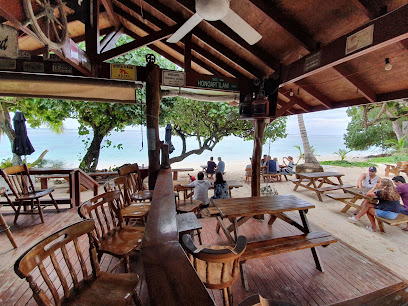
Spaghetti House Restaurant
Experience authentic Italian flavors at Spaghetti House Restaurant in Arorangi District—where culinary delight meets tropical beauty.
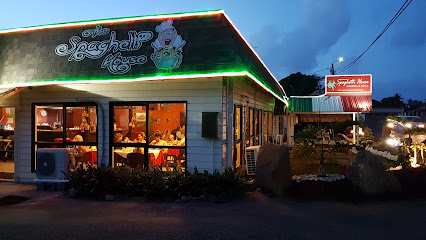
Flying Turtle Cafe
Experience authentic local cuisine in a stunning tropical setting at Flying Turtle Cafe on Rarotonga.
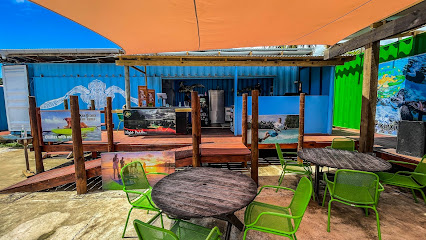
Kikau Hut
Experience authentic Cook Islands cuisine at Kikau Hut in Rarotonga—a perfect blend of local flavors and island hospitality.
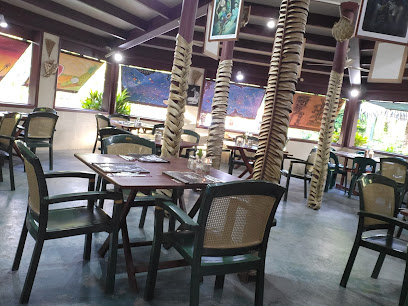
On the Beach Bar and Restaurant
Experience breathtaking ocean views and delectable cuisine at Rarotonga's premier beachfront dining destination.
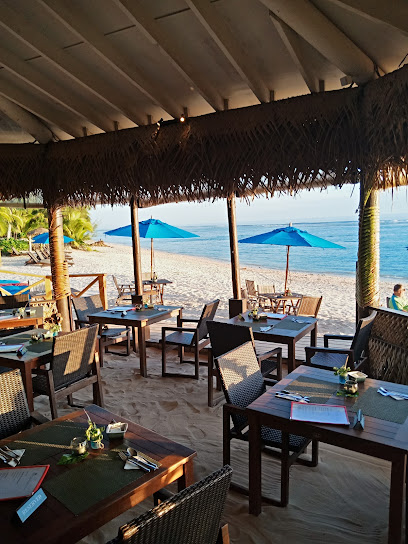
Markets, malls and hidden boutiques
Ollie's Surf Gear
Discover the best in surfwear and accessories at Ollie's Surf Gear in Avarua, where island style meets the surfing spirit.
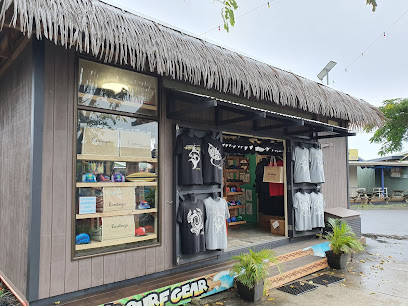
Island Craft Ltd
Shop at Island Craft Ltd for unique handcrafted gifts and souvenirs that embody the spirit of the Cook Islands and support local artisans.
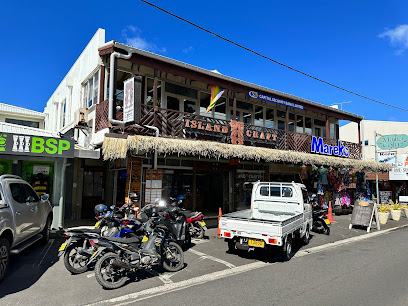
The T-Shirt Factory
Explore The T-Shirt Factory in Avarua for unique, locally-crafted clothing and souvenirs that capture the essence of the Cook Islands.
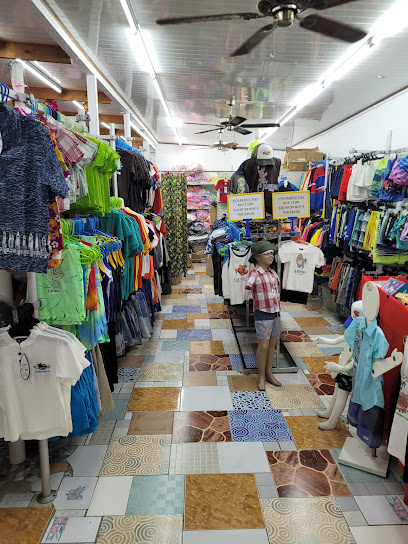
KAPS Matavera
Discover the essence of local life at KAPS Matavera, your go-to supermarket in the heart of Ngatangiia District, offering a diverse range of products.
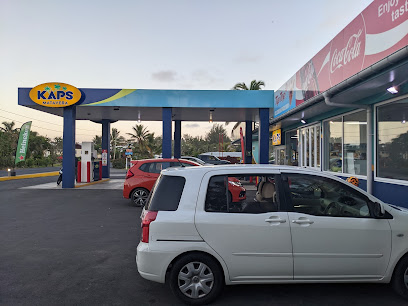
Cooks Fudge Factory/ Perfumes of Rarotonga
Experience the delightful fusion of handmade fudge and unique perfumes at Cooks Fudge Factory in enchanting Rarotonga.
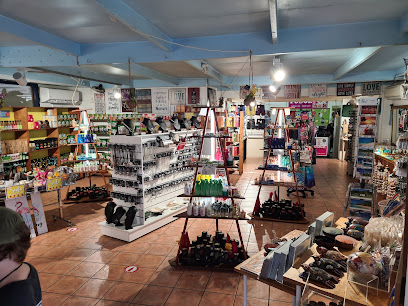
On the Juice Bar
Discover the vibrant flavors of coffee and fresh juices at On the Juice Bar, a tropical oasis in Ngatangiia District, Rarotonga.
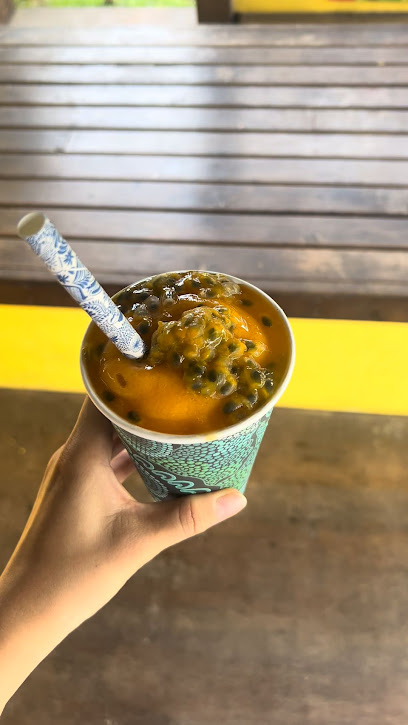
Vonnias Warehouse
Discover the essence of Cook Islands shopping at Vonnias Warehouse, where local crafts and friendly service await every visitor.
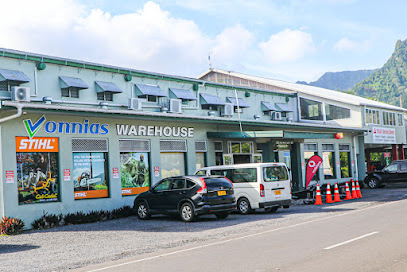
TEM Store and Takeaways
Discover local flavors and convenience at TEM Store and Takeaways, your go-to grocery store in Ngatangiia District, Cook Islands.
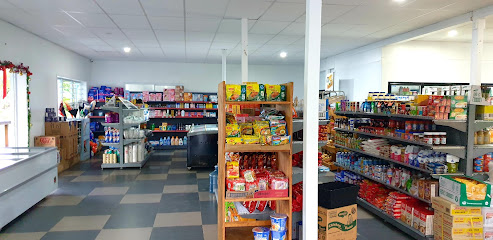
Tuki's Pareu
Explore the vibrant styles of Tuki's Pareu, where the essence of Cook Islands fashion comes to life with unique clothing and accessories.
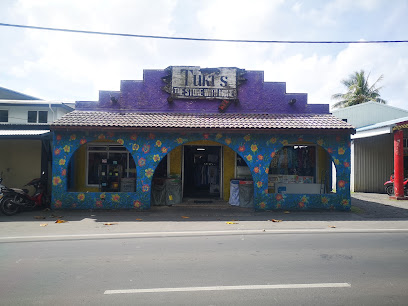
Tivaevae Collectables Cultural Gift Shop
Explore Tivaevae Collectables in Avarua for authentic Cook Islands crafts, textiles, and unique souvenirs that reflect the rich local culture.
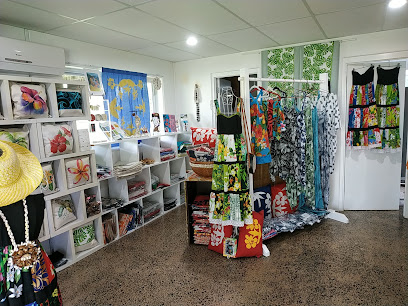
Mareko Island Creations
Discover the essence of the Cook Islands at Mareko Island Creations, where local artistry meets a warm, inviting atmosphere.
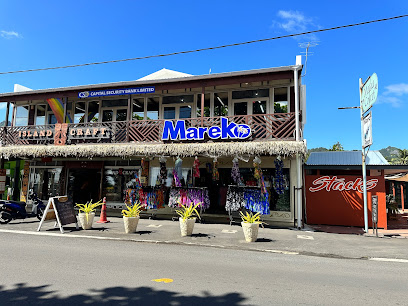
SPCA OP SHOP PUNANGA NUI MARKETS
Shop sustainably and support animal welfare at the SPCA Op Shop in the heart of Punanga Nui Markets, Avarua.
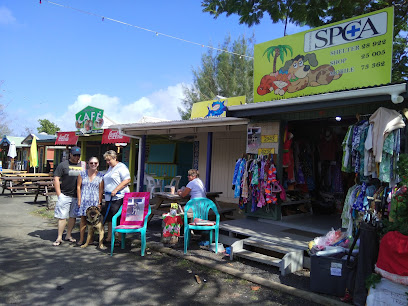
The Little Red Gallery
Immerse yourself in the vibrant artistry of the Cook Islands at The Little Red Gallery, a unique space showcasing local talent and creativity.
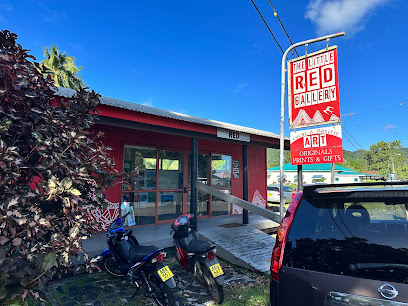
Paradise Bakeshop Ltd
Discover the sweet delights of Paradise Bakeshop Ltd in Ngatangiia District, where local flavors come to life in every delicious bite.
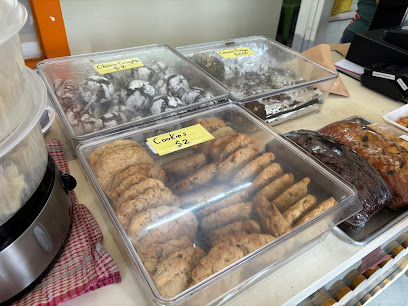
The Gift Shop
Explore a treasure trove of unique souvenirs and local crafts at The Gift Shop, Rarotonga's charming destination for tourists.
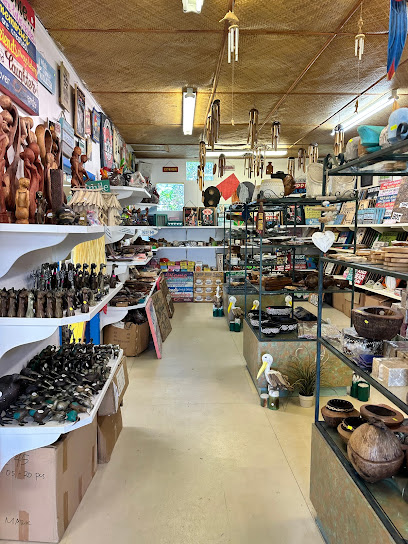
Essential bars & hidden hideouts
Trader Jacks
Discover the flavors of the Cook Islands at Trader Jacks, where fresh ingredients meet a lively atmosphere and breathtaking ocean views.
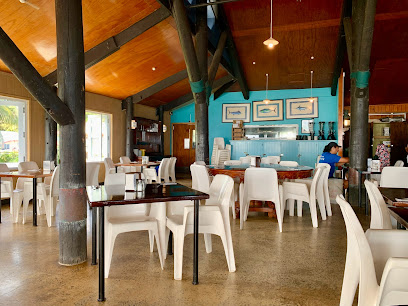
Charlie's Raro
Discover the lively atmosphere and delicious cuisine at Charlie's Raro, a top bar and restaurant in Takitumu District, Cook Islands.
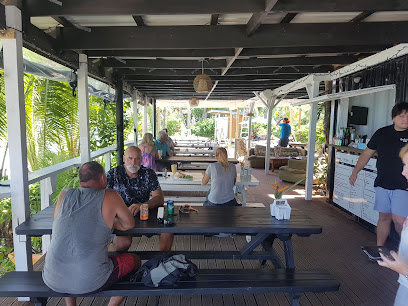
Vili's Burger Joint
Experience the unique flavors of Ngatangiia District at Vili's Burger Joint, where fresh ingredients meet island charm in every bite!
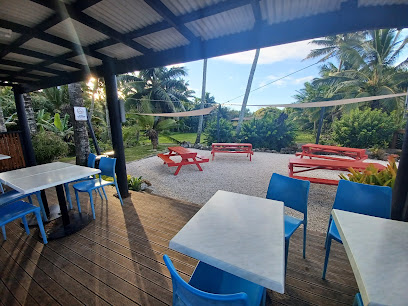
Tamarind House Restaurant & Ukulele Bar
Discover Tamarind House Restaurant & Ukulele Bar, where exquisite cuisine meets lively entertainment in the heart of Avarua, Cook Islands.
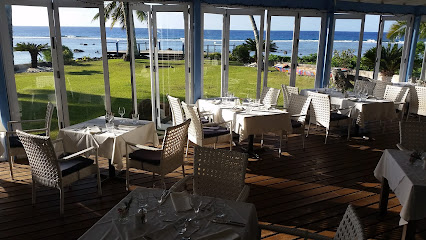
Vaima Restaurant and Bar
Experience the vibrant flavors of the Cook Islands at Vaima Restaurant and Bar, a perfect dining spot for both locals and visitors.
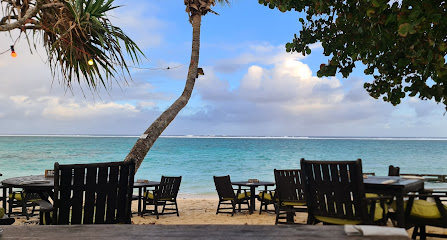
21.3 Vaiana's Bar & Bistro
Discover the perfect blend of relaxation and local flavors at Vaiana's Bar & Bistro in Avarua, where every sip and bite tells a story of the Cook Islands.
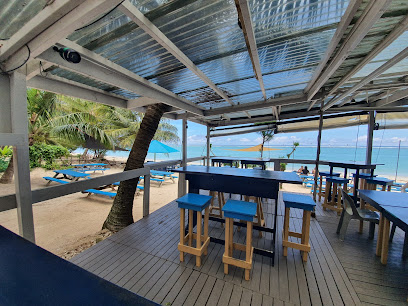
Rarotonga Sailing Club
Experience the best of Cook Islands cuisine and breathtaking views at Rarotonga Sailing Club, a must-visit dining destination for all travelers.
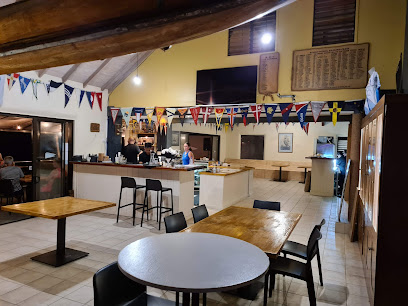
Shipwreck Hut Bar & Restaurant & Accomodation
Discover the unique flavors and vibrant ambiance of Shipwreck Hut Bar & Restaurant in Arorangi District, Cook Islands.
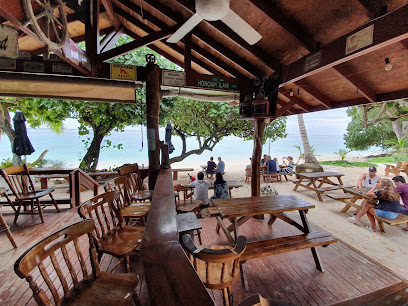
La Casita Rarotonga Mexican Cafe
Discover the vibrant flavors of Mexico at La Casita Rarotonga, a charming cafe in Ngatangiia District, offering authentic dishes in a tropical paradise.
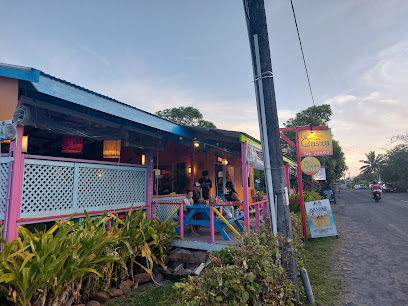
The Rickshaw Rarotonga
Experience the vibrant flavors of Rarotonga at The Rickshaw, a restaurant that blends local ingredients with culinary creativity.
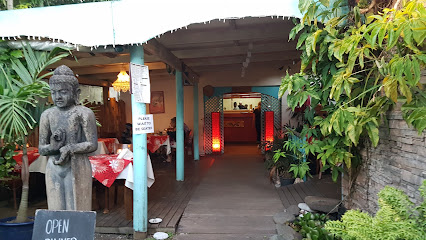
Laguna on Muri Restaurant and Bar
Discover the ultimate dining experience at Laguna on Muri Restaurant and Bar, where delicious steaks meet stunning ocean views in Ngatangiia District.
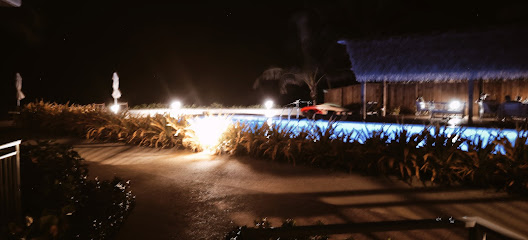
Takitumu Tapas
Discover the vibrant flavors of Rarotonga at Takitumu Tapas, where local ingredients and culinary creativity meet in a warm, inviting atmosphere.
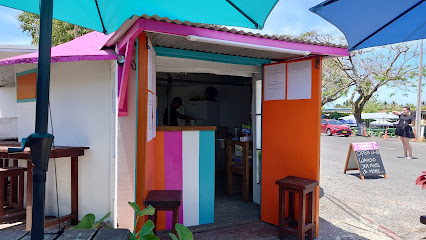
Captain Andy's Beach Bar & Grill
Experience the vibrant flavors of the South Pacific at Captain Andy's Beach Bar & Grill, a culinary gem in Arorangi District surrounded by stunning ocean views.
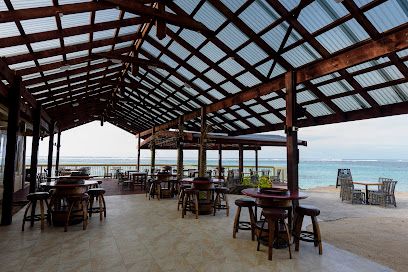
Mai’i Cafe & Bar
Discover the vibrant atmosphere of Mai’i Cafe & Bar in Takitumu District, where local flavors meet stunning views and tropical vibes.
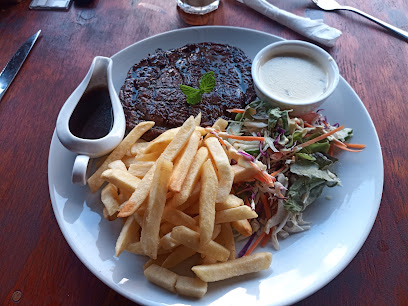
Hidden Spirit Cafe
Experience the serenity of Hidden Spirit Cafe in Takitumu District, where exceptional coffee meets a cozy atmosphere in the heart of the Cook Islands.
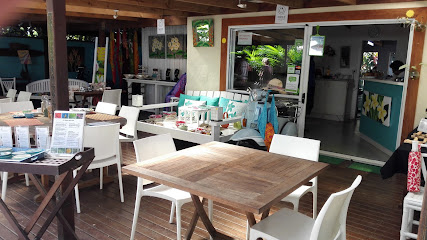
Local Phrases
-
- HelloKia orana
[Kee-ah oh-rah-nah] - GoodbyeAere ra
[Eye-reh rah] - YesE
[Eh] - NoKare
[Kah-reh] - Please/You're welcomeAere mai
[Eye-reh my] - Thank youMeitaki
[May-tah-kee] - Excuse me/SorryTatou
[Tah-toh] - How are you?Peu koe e?
[Peh-oo koh-eh eh] - Fine. And you?Maitai. E koe?
[My-tie. Eh koh-eh] - Do you speak English?E koe e akapereira i te reo parani?
[Eh koh-eh eh ah-kah-peh-ray-rah ee teh reh-oh pah-rah-nee] - I don't understandKare au e ariki i tei aue
[Kah-reh ow eh ah-ree-kee ee teh-ee ow-eh]
- HelloKia orana
-
- I'd like to see the menu, pleaseKia akakite mai au i te meniu, aere mai
[Kee-ah ah-kah-kee-teh my ow ee teh meh-new, eye-reh my] - I don't eat meatKare au e kai i te kai
[Kah-reh ow eh kai ee teh kai] - Cheers!Manuia!
[Mah-noo-ee-ah] - I would like to pay, pleaseKia akangara, aere mai
[Kee-ah ah-kahn-gah-rah, eye-reh my]
- I'd like to see the menu, pleaseKia akakite mai au i te meniu, aere mai
-
- Help!Ara!
[Ah-rah] - Go away!Taku atu!
[Tah-koo ah-too] - Call the Police!Tuku atu ki te Kuki Airani!
[Too-koo ah-too kee teh koo-kee eye-rah-nee] - Call a doctor!Tuku atu ki te doctara!
[Too-koo ah-too kee teh doh-kah-tah] - I'm lostKua riro au
[Koo-ah ree-roh ow] - I'm illKua mare au
[Koo-ah mah-reh ow]
- Help!Ara!
-
- I'd like to buy...Kia akaruke...
[Kee-ah ah-kah-roo-keh] - I'm just lookingE akarongo au
[Eh ah-kah-roh-ngoh ow] - How much is it?Eaha te moni?
[Eh-ah-hah teh moh-nee] - That's too expensiveTei mama te moni
[Teh-ee mah-mah teh moh-nee] - Can you lower the price?Kare koe e akatau i te moni?
[Kah-reh koh-eh eh ah-kah-tow ee teh moh-nee]
- I'd like to buy...Kia akaruke...
-
- What time is it?Kia aha te ora?
[Kee-ah ah-hah teh oh-rah] - It's one o'clockE tahi te ora
[Eh tah-hee teh oh-rah] - Half past (10)Tekau ma
[Teh-kow mah] - MorningAtapaa
[Ah-tah-pah-ah] - AfternoonApoapo
[Ah-poh-ah-poh] - EveningAtea
[Ah-teh-ah] - YesterdayIne
[Ee-neh] - TodayAnei
[Ah-neh-ee] - TomorrowApopo
[Ah-poh-poh] - 1Tahi
[Tah-hee] - 2Rua
[Roo-ah] - 3Toru
[Toh-roo] - 4Aha
[Ah-hah] - 5Rima
[Ree-mah] - 6Ono
[Oh-noh] - 7Fitu
[Fee-too] - 8Varu
[Vah-roo] - 9Iva
[Ee-vah] - 10Tekau
[Teh-kow]
- What time is it?Kia aha te ora?
-
- Where's a/the...?Kei ahea te...?
[Kay ah-heh-ah teh] - What's the address?Ko te tuuru e?
[Koh teh too-roo eh] - Can you show me (on the map)?Kare koe e akapaara i au (i te papaa)?
[Kah-reh koh-eh eh ah-kah-pah-ah-rah ee ow (ee teh pah-pah-ah)] - When's the next (bus)?Ahea te pu e tae mai?
[Ah-heh-ah teh poo eh tah-eh my] - A ticket (to ....)Te paiti (ki ...)
[Teh pie-tee kee]
- Where's a/the...?Kei ahea te...?
History of Ngatangiia
-
Ngatangiia is one of the most historically significant areas in the Cook Islands. According to oral traditions, the area was initially settled by Polynesians around 800-1000 AD. These early settlers navigated vast ocean distances in double-hulled canoes, using stars and ocean currents to find their way to the islands. Ngatangiia became one of the key settlement areas on Rarotonga, the largest of the Cook Islands.
-
One of the most important cultural and historical sites in Ngatangiia is the ancient marae of Arai-Te-Tonga. Marae were sacred places that served as centers for religious and social activities. Arai-Te-Tonga is believed to have been a place of great significance for the high chiefs (ariki) of the region. The marae was the focal point for ceremonies, including the investiture of chiefs, and remains a symbol of the rich cultural heritage of Ngatangiia.
-
The arrival of Christianity in the Cook Islands had a profound impact on Ngatangiia. In the early 19th century, missionaries from the London Missionary Society, such as John Williams, arrived in Rarotonga. They were welcomed by local chiefs and quickly began to convert the population. The first Christian service in the Cook Islands is said to have been held in Ngatangiia in 1823. The village soon became a hub for missionary activity, transforming the local culture and religious practices.
-
Ngatangiia is famously linked to the legendary voyage of the seven canoes (vaka) that set sail from the area to New Zealand (Aotearoa) around 1350 AD. This migration is a cornerstone of Polynesian history, representing the ancestral link between the Cook Islands and the Māori people of New Zealand. Each year, this historical event is commemorated with ceremonies and cultural festivities, celebrating the enduring ties between these two Polynesian cultures.
-
Ngatangiia Harbour, also known as Avana Harbour, has been an important site for both historical and cultural reasons. It served as a crucial point for the arrival and departure of canoes and later, European ships. The harbour is steeped in history and is associated with many traditional legends, including those of the great navigator Kupe, who is said to have stopped here during his voyages. Today, the harbour remains a picturesque reminder of Ngatangiia's maritime heritage.
-
Ngatangiia has long been a center for traditional fishing techniques, which have been passed down through generations. The lagoon and reef areas provided abundant marine resources, and the people of Ngatangiia developed sophisticated methods for fishing, including the use of nets, traps, and spears. These techniques are still practiced today, offering a glimpse into the sustainable practices of the past. The area is also known for its traditional fish traps, known as 'pa,' which can still be seen in the lagoon.
-
Ngatangiia is a vibrant community that actively preserves and celebrates its cultural heritage through various festivals and events. One of the most notable is the Te Maeva Nui festival, which celebrates Cook Islands' self-governance and cultural identity. Held annually, the festival features traditional dance, music, crafts, and food, with Ngatangiia playing a prominent role in the celebrations. These events provide an immersive experience for visitors, showcasing the rich cultural tapestry of the area.
Ngatangiia Essentials
-
Ngatangiia is located on the eastern side of Rarotonga, the largest of the Cook Islands. The main point of entry is the Rarotonga International Airport (RAR), which receives flights from New Zealand, Australia, and other Pacific islands. From the airport, you can hire a taxi, rent a car, or take a local bus to reach Ngatangiia. The journey typically takes about 20 minutes by car.
-
Ngatangiia is well-connected by the local bus service, which runs clockwise and counterclockwise loops around the island of Rarotonga. Buses are a convenient and inexpensive way to get around. Taxis are also available but can be more costly. Renting a scooter or a bicycle is a popular option for exploring the local area at your own pace. Car rentals are available for those who prefer more comfort and flexibility.
-
The official currency in the Cook Islands is the New Zealand Dollar (NZD). Credit cards are widely accepted in hotels, restaurants, and larger shops, but it's advisable to carry some cash for smaller establishments and markets. ATMs are available, but it's a good idea to withdraw cash in advance, especially if you plan to visit more remote areas.
-
Ngatangiia is generally a safe destination for tourists. However, standard travel precautions should be taken. Avoid walking alone at night in poorly lit areas and always keep an eye on your belongings. While crime rates are low, petty theft can occur, especially in crowded places. Stay vigilant and aware of your surroundings.
-
In case of emergency, dial 999 for police, fire, or medical assistance. The local hospital in Rarotonga is well-equipped to handle medical emergencies. It is recommended to have travel insurance that covers medical emergencies. For minor health issues, there are pharmacies where you can purchase over-the-counter medications.
-
Fashion: Do dress modestly, particularly when visiting villages and religious sites. Avoid wearing overly revealing clothing. Religion: Do respect local customs and traditions. Remove your shoes before entering a marae (sacred site). Public Transport: Do be respectful to bus drivers and other passengers. Don't eat or drink on public transport. Greetings: Do greet people with a warm smile and a friendly 'Kia Orana'. Eating & Drinking: Do try local dishes and accept food offerings graciously. Don't refuse hospitality, as it is considered impolite.
-
To experience Ngatangiia like a local, visit the Muri Night Market for a taste of local cuisine and crafts. Engage with the locals, who are known for their friendliness and willingness to share their culture. Don't miss the chance to attend a cultural show, which often includes traditional dance and music. For a unique experience, participate in a lagoon tour or try your hand at paddleboarding or kayaking in the crystal-clear waters.
Trending Landmark in Ngatangiia
-
Punanga Nui Market
-
Muri Night Markets
-
Captain Tamas Lagoon Cruizes
-
Vili's Burger Joint
-
Koka Lagoon Cruises
-
Te Vara Nui Village
-
Maire Nui Gardens and Cafe
-
Raro Buggy Tours
-
Rarotonga Sailing Club
-
LBV Bakery & Cafe
-
Te Ara Cook Islands Museum of Cultural Enterprise
-
Te Rua Manga (The Needle)
-
Wigmore's Waterfall
-
Muri Beach
-
The Rickshaw Rarotonga
Nearby Cities to Ngatangiia
-
Things To Do in Muri
-
Things To Do in Matavera
-
Things To Do in Takitumu
-
Things To Do in Avatiu
-
Things To Do in Avarua
-
Things To Do in Arorangi
-
Things To Do in Nikao
-
Things To Do in Maupiti
-
Things To Do in Bora Bora
-
Things To Do in Raiatea
-
Things To Do in Huahine
-
Things To Do in Moorea
-
Things To Do in Papeete
-
Things To Do in Tahiti
-
Things To Do in Tetiaroa







